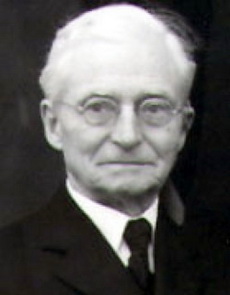In an earlier post, I wrote:
Seen from the perspective of believers, the Gospel of Mark and the Gospel of John are disconcertingly different. On the other hand, if we clear our minds of the anxiety of historicity, we see that Mark and John resemble one another much more than they do any “other” Greco-Roman biography.
Notice that both gospels don’t begin with the birth of the subject (Jesus) or even vignettes from his childhood. Instead, they start with John the Baptist. In fact, both John and Mark have the Baptist utter the very first words of direct speech.

The fact that John’s pattern for writing a gospel — what the Germans refer to as Gattung — seems suspiciously similar to Mark’s pattern did not escape Charles H. Talbert’s notice. In What Is a Gospel? he wrote:
The heritage of the last generation’s research, as enshrined in the commentaries on the Fourth Gospel by C. H. Dodd and Rudolf Bultmann, has supplied us with the working hypothesis that John and the Synoptics are independent of one another. James M. Robinson has seen that this hypothesis poses the problem of explaining how the same Gattung could emerge independently in two different trajectories, the synoptic and the Johannine.
If, as is usually supposed, Mark was the creator of the literary genre gospel and if John was independent of Mark, where did the fourth Evangelist get his pattern? (Talbert 1986, p. 9-10, bold emphasis mine)
Mark’s Pattern
The consensus among NT scholars for over a century has held that sayings of and stories about Jesus floated freely, first as oral history — kept alive through telling and retelling by his disciples — then as oral tradition, and finally as written gospels. But those first “gospels” were, so the reasoning goes, more or less freeform collections. Not until Mark did we at last see the first narrative gospel, which integrated the stories, sayings, and parables, laid out structurally as a journey along the path from Galilee to Jerusalem, with a tacked-on, pre-existing Passion Narrative.
[James M. Robinson] states that “the view that one distinctive Gattung Gospel emerged sui generis from the uniqueness of Christianity seems hardly tenable.” [Robinson (Trajectories) p. 235, 1971] The emergence of Mark and John independently points to the necessity for a reexamination of the question of the genre of the canonical gospels. (Talbert 1986, p. 10)
Wow. Can you believe Bultmann had the nerve to insist that the author of the Fourth Gospel had no knowledge at all of Mark’s gospel and failed to realize that John’s independent invention of a supposedly unique Gattung strains credulity? Continue reading “The Enigma of Genre and The Gospel of John”
